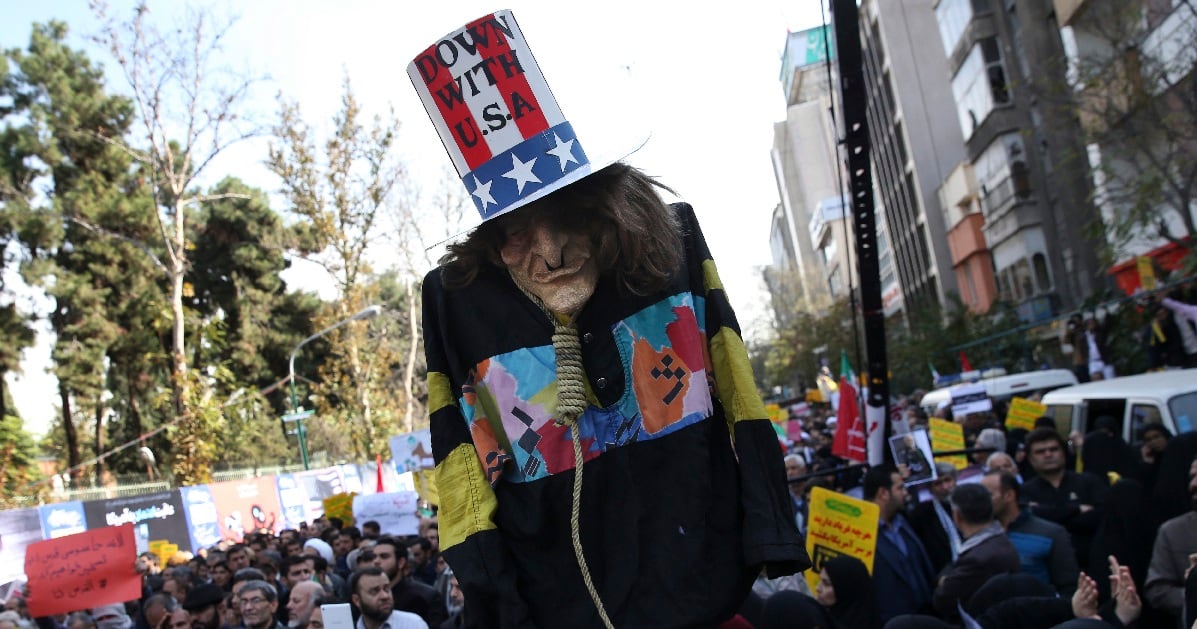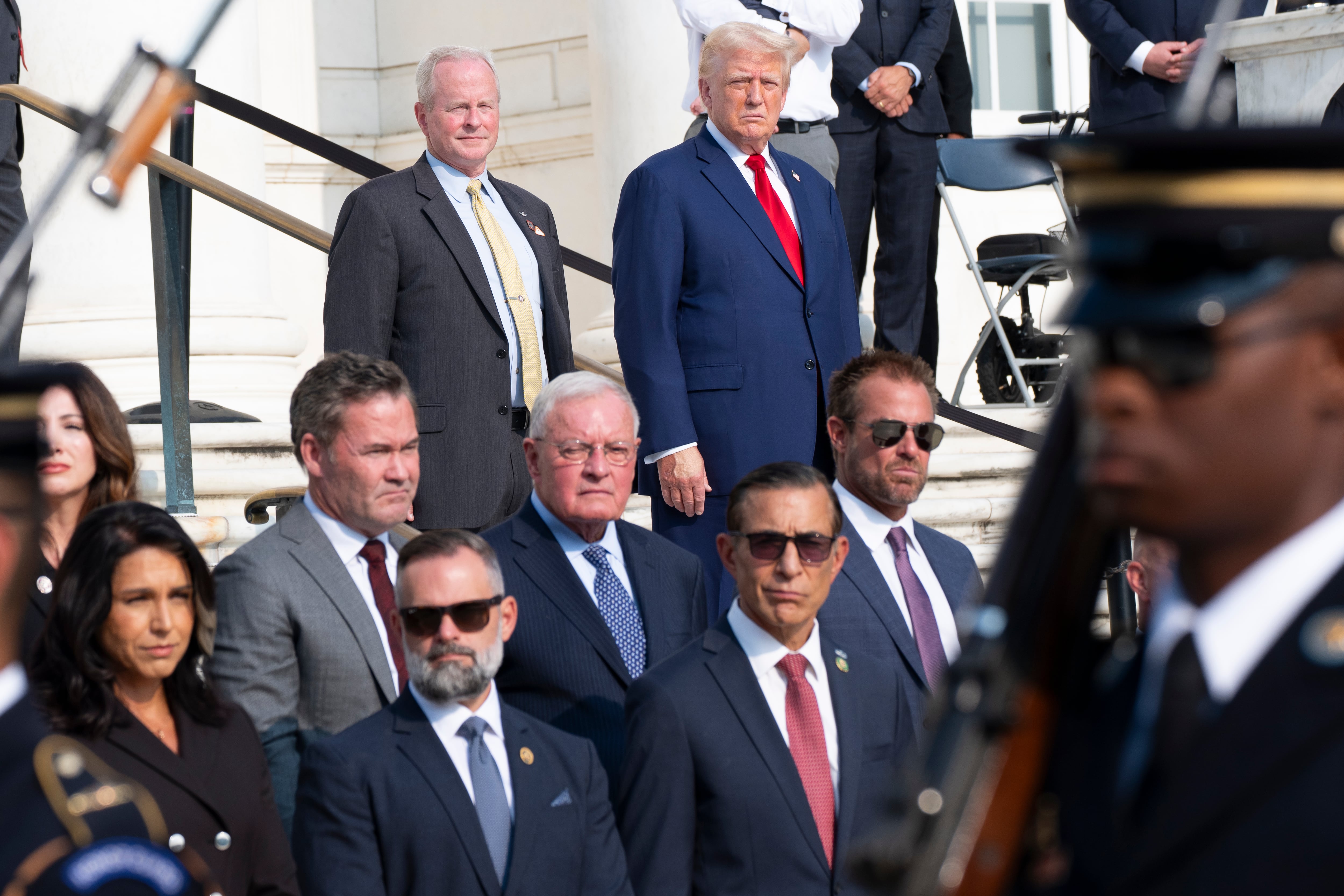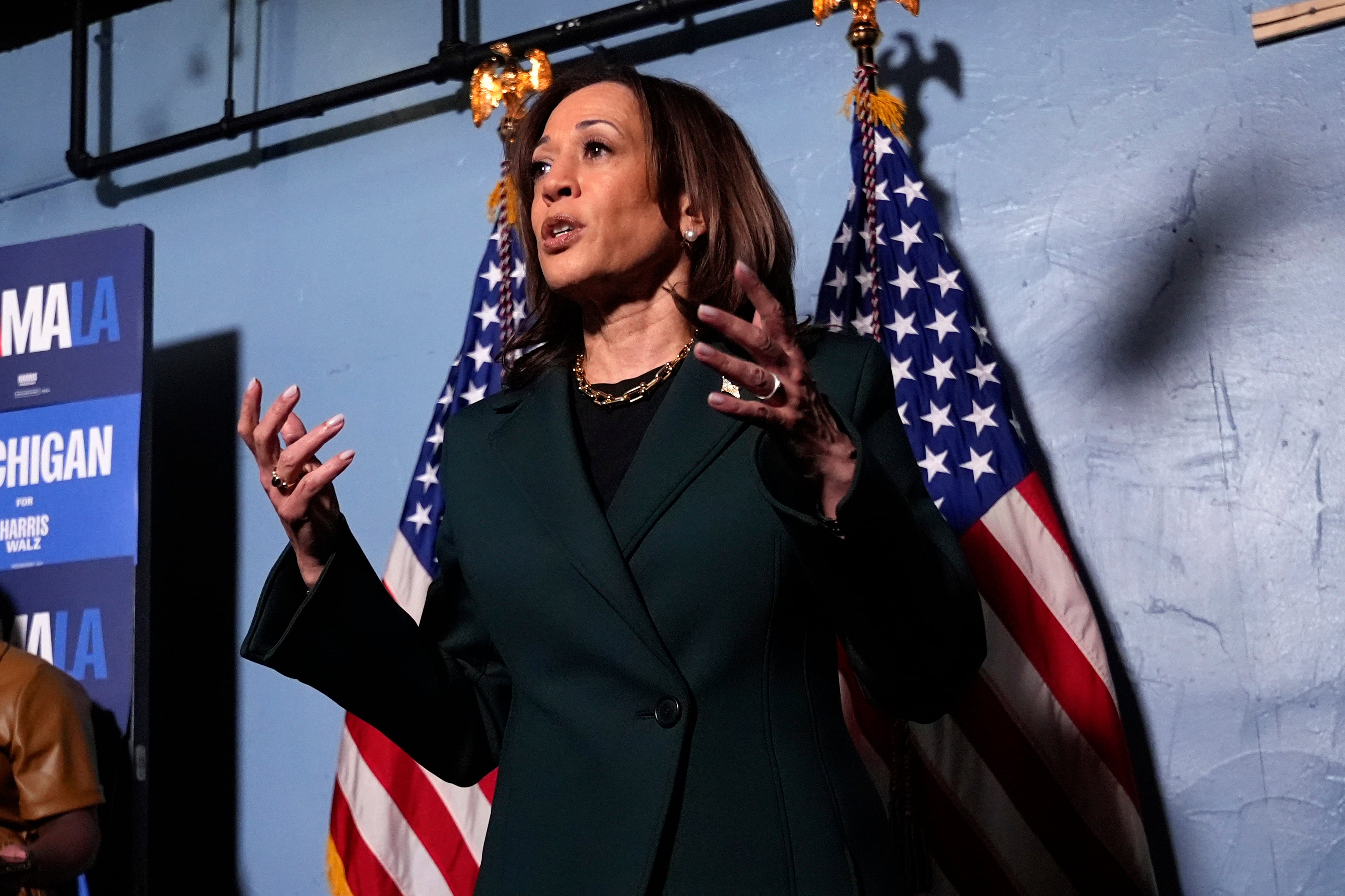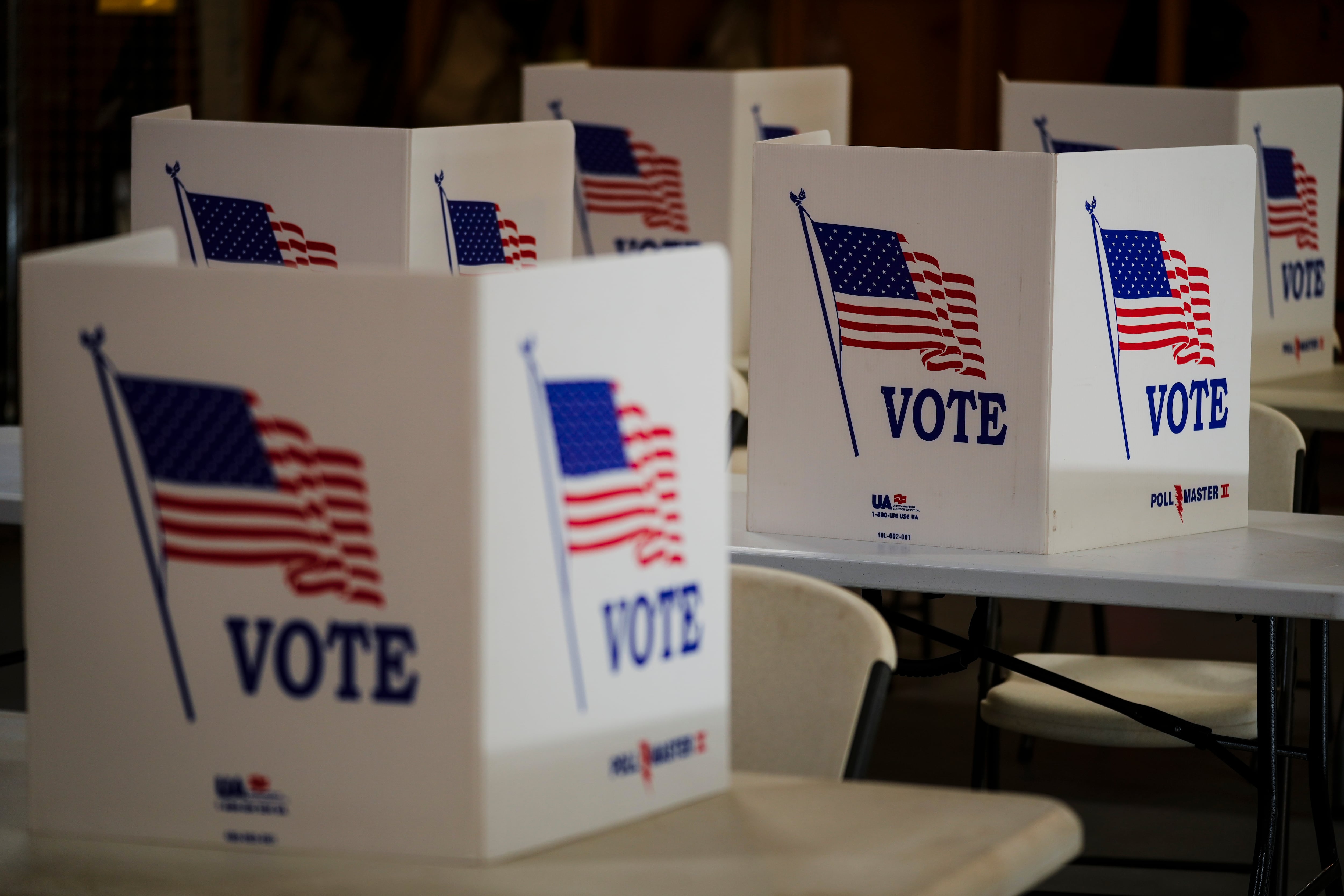TEHRAN, Iran — Iran greeted the re-imposition of U.S. sanctions on Monday with air defense drills and a statement from President Hassan Rouhani that the nation faces a “war situation,” raising Mideast tensions as America’s maximalist approach to the Islamic Republic takes hold.
The sanctions end all economic benefits America had granted Tehran for its 2015 nuclear deal with world powers, though Iran for now continues to abide by the accord that saw it limit its enrichment of uranium. While at the moment not threatening to resume higher enrichment, Iranian officials in recent months have made a point to warn the controversial process could resume at any time, faster than before.
The new American sanctions particularly hurt Iran's vital oil industry, a crucial source of hard currency for its anemic economy. Its national currency has plummeted over the last year, sending prices for everything from mobile phones to medicine skyrocketing.
RELATED
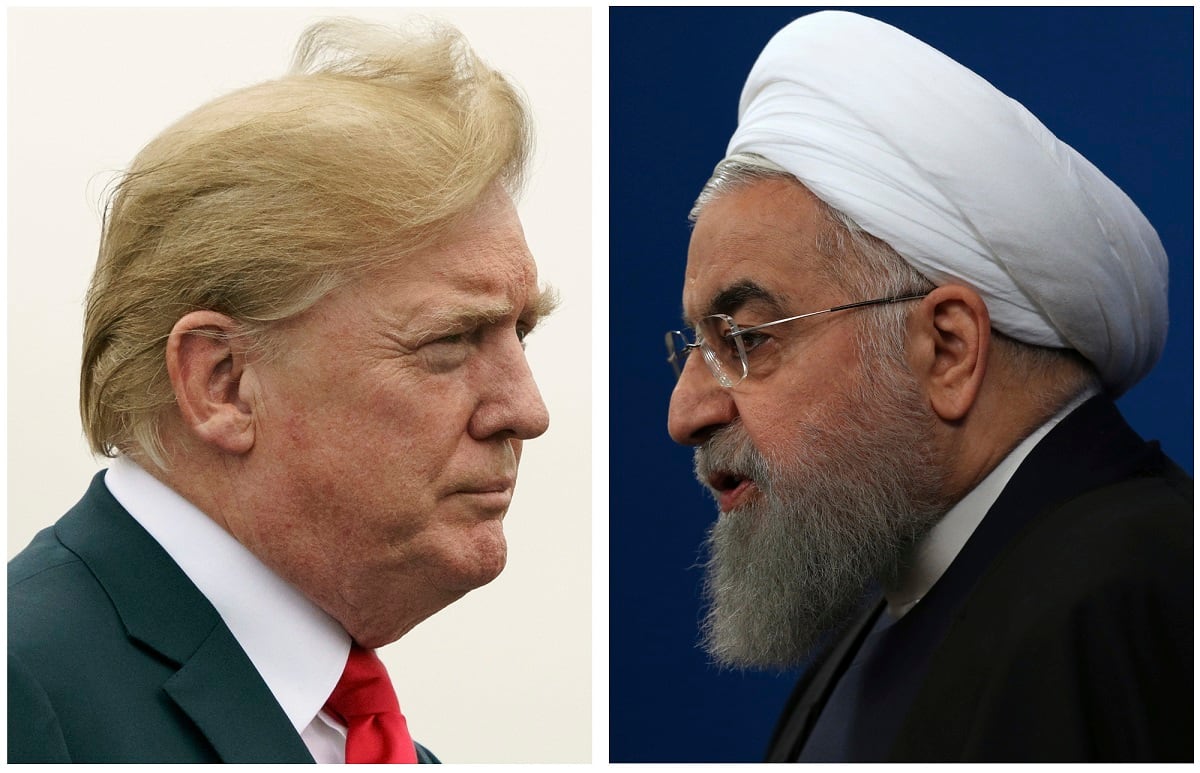
"Today, Iran is able to sell its oil and it will sell," Rouhani vowed Monday as the sanctions kicked in.
However, the noose of American sanctions appeared to be tightening. Iranian officials, meanwhile, reported a cyberattack targeting the country's communication infrastructure, blaming the purported attack on Israel.
Iranian state television aired footage of air defense systems and anti-aircraft batteries in two-day military maneuvers underway across a vast stretch of the country's north. It included surface-to-air missiles shooting down a drone.
The drill was to continue through Tuesday. Iranian army Gen. Habibillah Sayyari said both the national army and the country's paramilitary Revolutionary Guard were taking part in the exercise.
Rouhani, meanwhile, pledged to government officials in comments aired on state TV that Iran would overcome the sanctions.
"We are in the war situation, " Rouhani said. "We are in the economic war situation. We are confronting a bullying enemy. We have to stand to win."
He further stepped up the rhetoric, comparing Iran’s situation in the 1980s war against Iraqi dictator Saddam Hussein with the current one and President Donald Trump’s move to reinstate U.S. sanctions.
“Yesterday, Saddam was in front us, today Trump is front of us. There is no difference. We must resist and win,” he said.
U.S. Secretary of State Mike Pompeo stressed that U.S. pressure on countries to stop buying Iranian oil had already reduced its exports by more than a million barrels of crude per day, and predicted an effect on the country’s nuclear ambitions.
“Rest assured, Iran will never get close to obtaining a nuclear weapon under President Trump’s watch,” Pompeo said.
Iran is already in the grip of an economic crisis. Its national currency, the rial, now trades at 150,000 to one U.S. dollar, down from when it traded around 40,500 to $1 a year ago. The economic chaos sparked mass anti-government protests at the end of last year which resulted in nearly 5,000 reported arrests and at least 25 people being killed. Sporadic demonstrations still continue.
Rouhani separately said leaders from "four powers" met with Iran on the sidelines of the September meeting of the United Nations General Assembly to try to save the deal, including brokering a possible meeting with Trump. He did not name those countries, but was likely referring to China, France, Russia and Britain, which along with Germany made up the world powers involved in the 2015 nuclear deal.
"This issue does not require a mediator," Rouhani said, blaming America for unilaterally pulling out of the accord.
Iran's Foreign Ministry spokesman Bahram Ghasemi also predicted the sanctions will actually work against America's interests.
"Many countries from Europe to Russia and China have opposed the sanctions," Ghasemi told journalists, adding that Iranians "have experienced more extensive sanctions" and that they are "not a new issue."
The United States says the sanctions are not aimed at toppling the government, but at persuading it to radically change its policies, including its support for regional militant groups and its development of long-range ballistic missiles.
However, Trump’s personal lawyer Rudy Giuliani and John Bolton, the president’s national security adviser, both have made public statements supporting overthrowing Iran’s theocratic government.
Also Monday, Iran's Telecommunication Minister Mohammad Javad Azeri Jahromi and his deputy, Hamid Fatahi, both tweeted about a cyberattack targeting the country's communications infrastructure, without elaborating. They blamed Israel for the attack and both referenced Stuxnet, which destroyed thousands of centrifuges involved in Iran's contested nuclear program in 2011. Stuxnet is widely believed to be an American and Israeli creation, though neither country has acknowledged being behind the attack.
Israel's Foreign Ministry declined to comment on the Iranian claim. Last week, Gen. Gholam Reza Jalali, the head of country's military unit in charge of combatting sabotage, said Rouhani's cell phone was tapped recently.
Israel's Defense Minister Avigdor Lieberman welcomed the newly restored U.S. sanctions in a tweet, saying they will deal a "critical blow" to Iran's military presence around the Middle East.
The Trump administration's decision to restore sanctions "is the sea change the Middle East has been waiting for," he said.
Associated Press writers Jon Gambrell in Dubai, United Arab Emirates, and Tia Goldenberg in Jerusalem contributed to this report.
